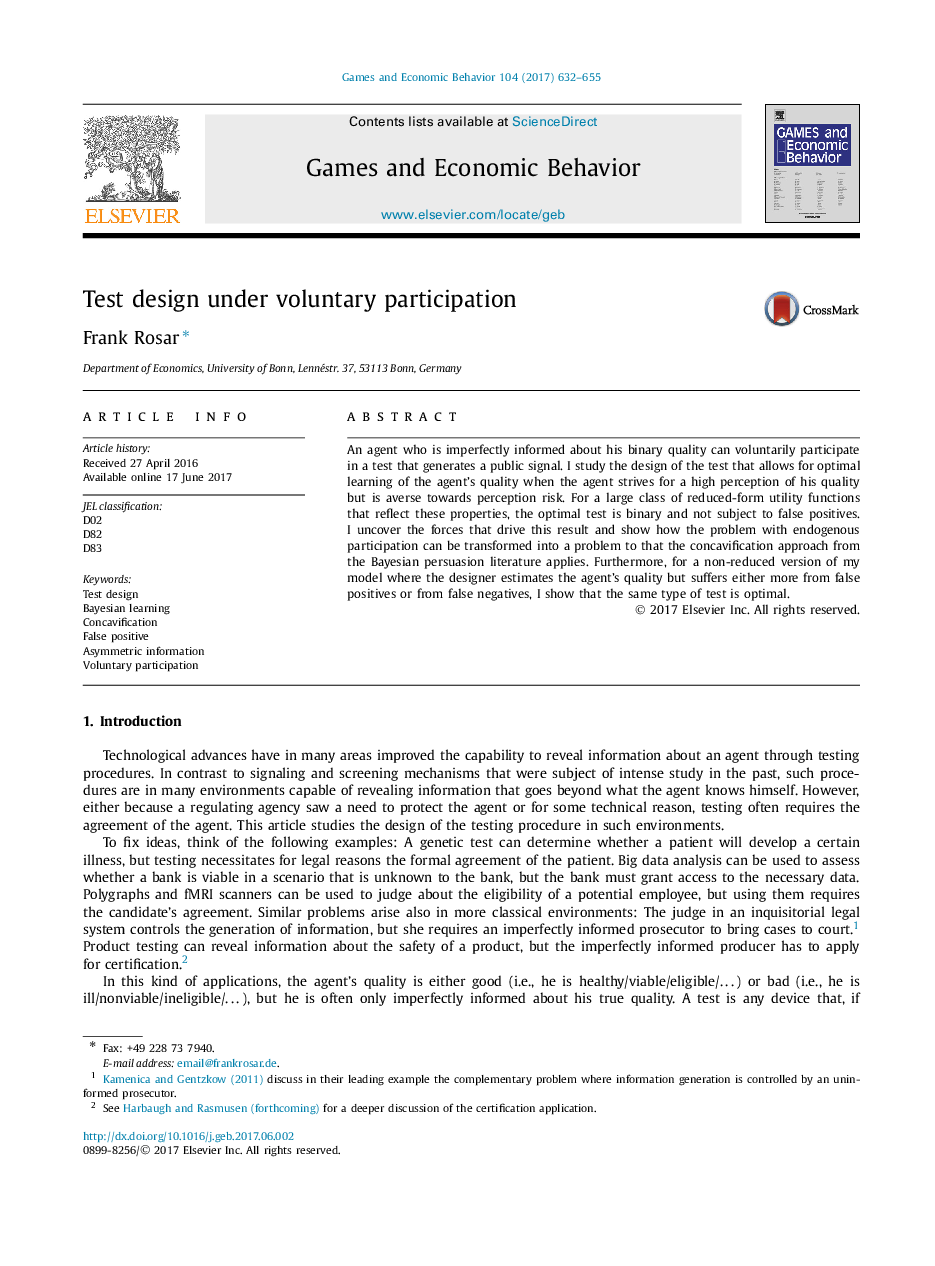| Article ID | Journal | Published Year | Pages | File Type |
|---|---|---|---|---|
| 5071353 | Games and Economic Behavior | 2017 | 24 Pages |
Abstract
An agent who is imperfectly informed about his binary quality can voluntarily participate in a test that generates a public signal. I study the design of the test that allows for optimal learning of the agent's quality when the agent strives for a high perception of his quality but is averse towards perception risk. For a large class of reduced-form utility functions that reflect these properties, the optimal test is binary and not subject to false positives. I uncover the forces that drive this result and show how the problem with endogenous participation can be transformed into a problem to that the concavification approach from the Bayesian persuasion literature applies. Furthermore, for a non-reduced version of my model where the designer estimates the agent's quality but suffers either more from false positives or from false negatives, I show that the same type of test is optimal.
Keywords
Related Topics
Social Sciences and Humanities
Economics, Econometrics and Finance
Economics and Econometrics
Authors
Frank Rosar,
